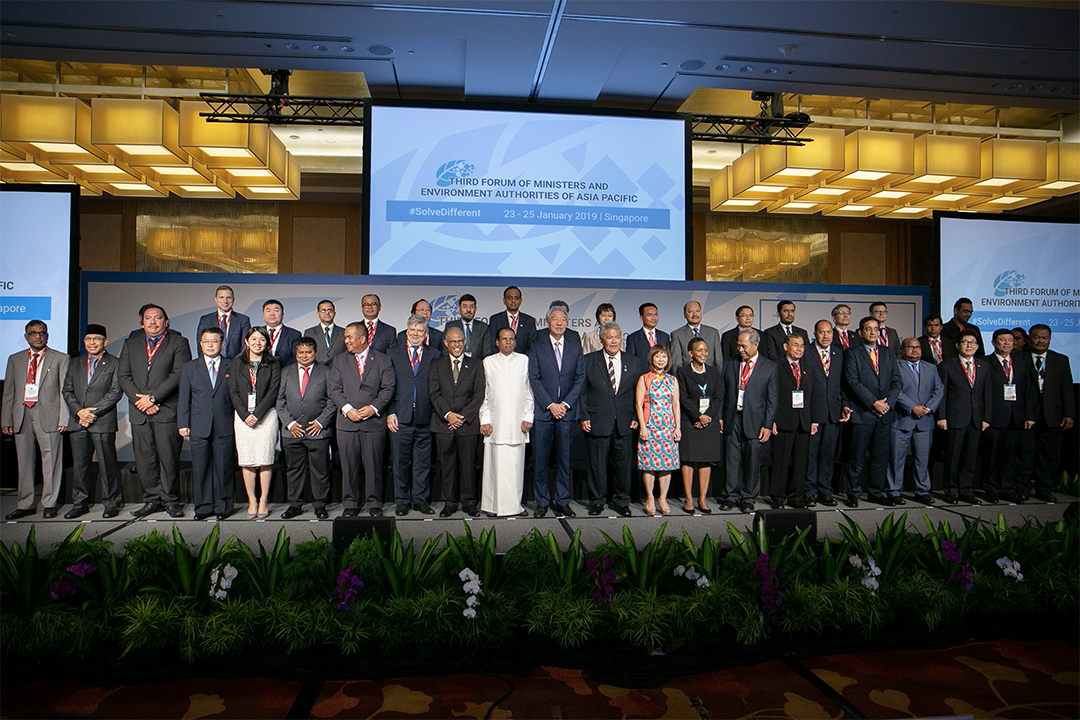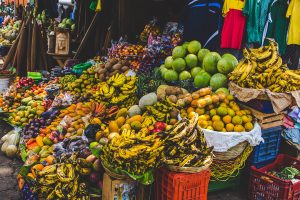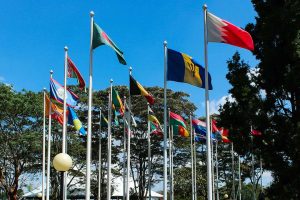The Forum of Ministers and Environment Authorities of Asia Pacific is a regional preparatory meeting for the UN Environment Assembly (UNEA), which is the world’s highest decision-making body on the environment and is organized by UNEP every other year. As we near the opening of the fourth session of UNEA, which will convene in Nairobi from 11-15 March 2019, under the theme “Innovative solutions for environmental challenges and sustainable consumption and production,” the deliberations of the regional preparatory meeting provide a guide for what to look for from the Asia Pacific delegates.
The Third Forum of Ministers and Environment Authorities of Asia Pacific convened in Singapore and considered the same theme that UNEA4 will address. The Forum had three segments: Major Groups and other Stakeholders Forum (23 January), Senior Officials Segment (24 January), and Ministerial Segment (25 January). The Major Groups and other Stakeholders Forum brought together non-governmental representatives as a preparatory meeting to the other two segments.
During the forum, delegates:
- Reviewed progress on the implementation of UNEA resolutions in Asia and the Pacific;
- Reviewed progress of regional forums where UNEP is the secretariat, including the Asia Pacific Clean Asia Partnership, Asia Pacific Adaptation Network, and Acid Deposition Monitoring Network in East Asia;
- Identified priorities and emerging issues from the region to be reflected in preparations for UNEA4;
- Provided regional inputs to the UNEA4 theme and its draft outcome documents; and
- Discussed challenges and opportunities to strengthen the regional environmental agenda for delivering the Sustainable Development Goals (SDGs) and regional commitments to international agreements.
My reflections on the meeting in Singapore, as I prepare for UNEA4, are as follows:
Asia Pacific showed a strong interest in waste management and resource efficiency: Compared with UNEA3, which took place in December 2017, an increased number of draft resolutions have been tabled by countries in Asia and the Pacific for UNEA4, and many of these draft resolutions concern waste management and resource efficiency issues. For example, draft resolutions on marine litter (Japan, Indonesia, and Sri Lanka), sustainable consumption and production (Indonesia), and food waste and food security (Sri Lanka) are directly linked to these issues. In addition, several countries expressed concern through their country statements about marine litter and the urgent need to address pollution from land-based sources. Among waste management issues, the need to address plastic waste was frequently highlighted. Member states shared national initiatives to minimize single-use plastics and challenges including those related to recycling plastics. Malaysia suggested establishing an international treaty to track plastics. By publicly announcing that waste management is a significant challenge, developing countries in the region may be trying to secure more technical, capacity building, and financial support from the international community. UNEA4’s theme on innovation can be linked to requests for technology transfer and support for capacity building, which may help to explain the increased number of tabled resolutions on this topic.
UNEP has been supporting Asia and the Pacific to address waste management issues through various partnerships. For example, the IGES Centre Collaborating with UNEP on Environmental Technologies (CCET) has been involved in assisting national and local governments in Asia in advancing appropriate policies, regulations, strategies and technologies in planning and implementing environmentally-sound waste management systems in order to direct a shift toward resource efficient and sustainable societies. However, international, regional and sub-regional collaboration to tackle waste management issues will need to expand as the region continues to produce increasing amount of waste as the economy grows.
Some Issues Were “Missing” during the Discussions in Singapore: The Forum’s discussions on innovation touched on technical, policy, and financing aspects but not so much on the governance and social elements needed for innovation. Civil society pointed out the need to think of governance arrangements not only for existing environmental challenges but also for unforeseen challenges. For example, certain types of geoengineering have been proposed as a solution to climate change. However, the international community does not yet have enough knowledge about the potential environmental benefits and risks of geoengineering technologies. This situation points to the need to shift from focusing on addressing environmental challenges to a focus on preventing environmental challenges. This shift requires appropriate governance structures in order to be successful. The international community has to think about how to establish an appropriate governance arrangement, including what role UNEP will play as an international organization on the environment.
Ownership by Member States is Important: The host country Singapore demonstrated strong ownership of the Forum, and was the first country to host this Forum outside Bangkok, Thailand. Singapore presented its public and private sector initiatives on circular economy including setting 2019 as the zero waste year, using incineration bottom ash for road construction and non-construction materials, internalizing the cost of externalities into the price of water and other resources, and building zero emission buildings. Singapore also suggested that the region commit to establishing a circular economy. Japan also demonstrated its commitment to this Forum as the host country of the G20 this year. It tabled a draft resolution on marine plastic litter that will feed into the outcome of the G20 meeting, which will also discuss marine plastic litter. Looking ahead, the Republic of Korea is expected to demonstrate strong ownership of the next Forum, which it will host in 2020 in preparation for UNEA5.
The discussions that open today in the Open-Ended Committee of Permanent Representatives to UNEP will provide an opportunity to view how the priorities of the Asia Pacific region will be matched and melded with the priorities of other regions. The process may also highlight the differences in governments’ views on environmental challenges and solutions. To help bridge different views among governments, non-governmental stakeholders may be able to offer useful knowledge and insights. Meaningful participation of multiple stakeholders in UNEA4 will be key.
This article was authored by Nobue Amanuma, Senior Policy Researcher, Sustainability Governance Center (SGC), Institute for Global Environmental Strategies (IGES)


